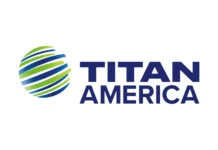Projects seldom go over budget not for lack of resources but for poor planning. Good planning will see to it that every step from goal-setting to task assignment is done with care and consideration. If project managers prioritize early, assign resources sufficiently, and plan for risks, they can avoid unnecessary expenses. Projects become less unpredictable, less stressful, and far more economical. In today’s competitive environment, good planning is not an option—it is the only means to achieve success at minimal costs.
Historical Note: Ancient mega projects reveal to us early insights into the value of planning. Roman aqueducts, built to transport water over long distances, required elaborate synchronization of manpower, material, and time. Without proper planning, such mega projects could never have withstood the test of centuries. Other civilizations disappointed in comparison when resources were poorly utilized, leading to project failures and costly mistakes. These reminders therefore indicate that successful planning has all the while been valuable in cutting costs and ensuring eventual success.
Understanding Project Costs
Every project comes with a wide range of costs that must be recognized early on. These can include direct expenses such as labor and materials, as well as indirect costs like delays, errors, or poor communication. When teams do not fully understand the scope of their financial responsibilities, budgets quickly spiral out of control. Efficient planning begins with a clear picture of what resources are required and how they will be managed. By outlining needs, anticipating risks, and tracking spending, project leaders can ensure that money is allocated wisely and not wasted on avoidable mistakes.
- Direct costs such as materials, equipment, and labor
- Indirect costs including administrative tasks or delays
- Hidden costs caused by poor coordination or rework
When managers and teams take time to identify these categories, they make smarter choices that keep finances under control. This allows projects to move forward with fewer surprises and a stronger sense of security. For example, by preparing for hidden costs upfront, teams can avoid scrambling for extra funds later. Understanding costs in detail also helps leaders explain budgets clearly to stakeholders, building trust and confidence in the process. Careful cost analysis at the planning stage prevents waste and lays the groundwork for project success.
Planning Basics That Matter
- Define clear project goals before work begins
- Assign roles and responsibilities with precision
- Set realistic timelines for each stage of the project
- Establish a budget that includes contingencies
Observation: A small software company once launched a project without setting clear goals or assigning roles properly. Team members duplicated tasks, deadlines slipped, and costs nearly doubled. On their next project, they created a simple plan with timelines, budgets, and responsibilities laid out. The difference was remarkable—delays were minimal, and the project came in under budget.
Planning basics might seem simple, but they are the foundation of efficient management. Projects built on clear goals, defined roles, and strong budgets stay focused and organized. When these basics are overlooked, costs rise, and stress increases. By sticking to simple yet effective planning principles, teams create smoother workflows and significantly reduce unnecessary expenses.
Avoiding Common Mistakes
One of the most effective ways to keep projects within budget is to avoid common mistakes that lead to wasted time and money. Many projects overspend because of vague goals, unclear communication, or failure to anticipate risks. When planning lacks detail, small problems can snowball into costly setbacks. Teams may end up redoing work, rushing deadlines, or paying extra for last-minute resources. Efficient planning is about preventing these traps before they appear. Leaders who prioritize communication, risk assessment, and clear documentation give their projects the best chance at staying on track. Dover, NH welcomes a new kind of storage clarity, and in the same way, projects succeed when clarity is placed at the center of planning and decision-making.
Research: A report from the Project Management Institute found that 37 percent of projects fail due to a lack of defined objectives and poor communication. Projects that invested more time in early planning stages were nearly twice as likely to be completed successfully, showing that strong preparation pays off in measurable ways.
By learning from mistakes and applying lessons early, managers reduce the chance of repeating them. This proactive approach saves both time and resources, leading to smoother outcomes and greater trust from stakeholders.
Benefits Beyond Cost Savings
Efficient planning is often praised for saving money, but its benefits extend further. Projects planned carefully tend to finish on time, build stronger team relationships, and provide higher-quality results. When resources are managed well, employees face less stress, and stakeholders receive more predictable outcomes. Poor planning may save effort at first but usually results in higher costs and lower morale.
Case study: A construction company compared two similar projects. The first was rushed into action without thorough planning and ended up costing 20 percent more due to delays and rework. The second project followed a structured plan, with milestones, budgets, and clear responsibilities. Not only was it completed under budget, but employees also reported less stress and higher satisfaction.
Comparing these outcomes highlights how efficient planning provides benefits that money cannot measure. From building trust to improving team culture, the advantages go well beyond the budget sheet.
Tools for Smarter Planning
One marketing firm showed how putting in place simple planning tools completely transformed their results. Projects were typically late and over budget at first. The team was largely functioning from email and rough notes, and they were confused and losing track of things. They proceeded to work with project management software that they could utilise to assign costs, deadlines, and to lay out clearly defined roles. Within months, projects were more streamlined, and the improvement in delivery and consistency was apparent to the clients. The team was more confident as they could see progress at all times.
Those that are successful at utilizing planning tools reduce project postponements by 27 percent.
Software experts remind us that software need not be complicated to be productive. Simple collaboration calendars can avoid teams duplicating work and remain budget-friendly. Testimony from businesses of every sector confirms that structure builds trust among workers and customers. Clear documentation, reminders, and tracking build accountability and allow leaders to correct quickly if something does go wrong. Real-world proof shows that better-planned software begets better results, proving value rather than assuming it.
Final Thoughts
The role of efficient planning in reducing project costs cannot be overstated. Careful preparation prevents mistakes, controls budgets, and creates confidence for everyone involved. It also improves team morale and strengthens results beyond financial savings. Each project becomes more predictable, more professional, and ultimately more successful. By embracing efficient planning, businesses and individuals alike can reduce project costs while building a foundation for long-term achievement and growth.































